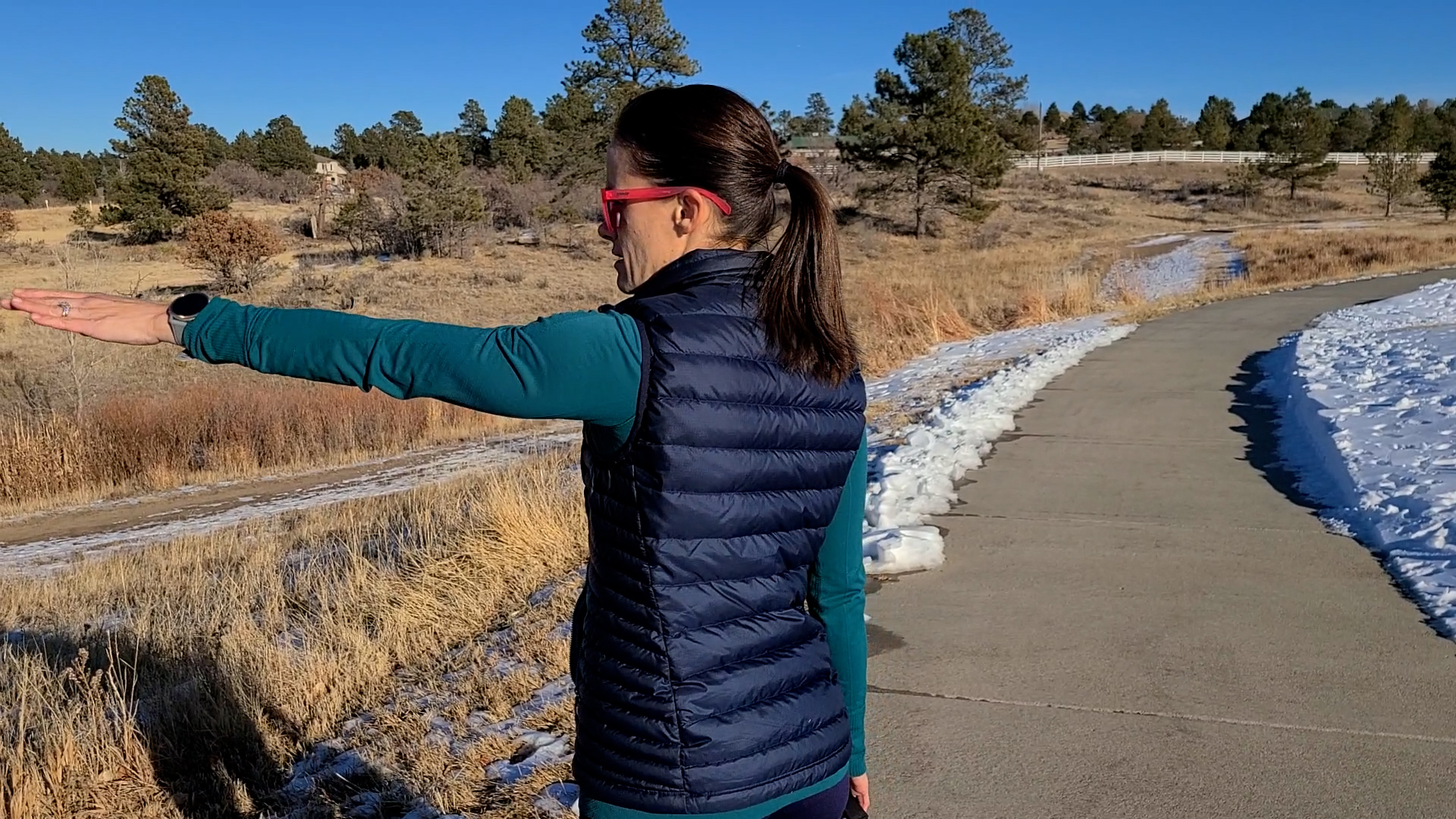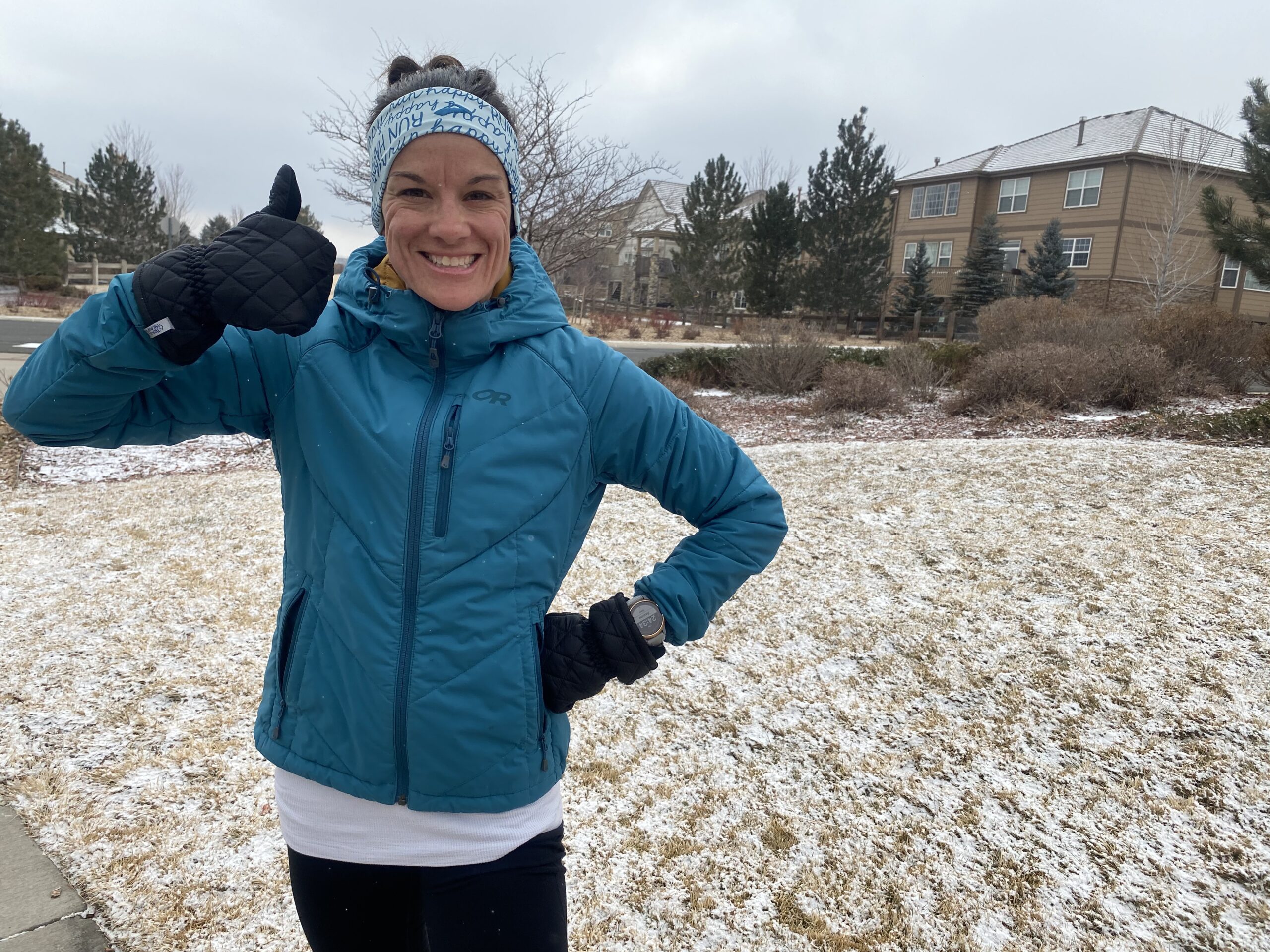Most non-elite runners don’t consider hiring a running coach when they’re just getting started, especially if they never ran track or cross country in their younger years. But as time goes on and runners become a part of the running community and start chasing bigger goals, it’s pretty common to start thinking, “Should I hire a running coach?”
And if you’re already thinking you’re not a fast enough runner to hire a running coach, you need to get that thought out of your head right now. Running coaches are for ANY runner who wants to achieve more when it comes to their running. I’ve been where you are – toying with the idea of hiring a running coach, but not sure if it was right for me.
Ultimately I knew that hiring a running coach could only help me toward reading my potential as a runner, and so I went for it. Read on to find out if it’s the right choice for you, too.
6 Reasons You Should Consider Hiring a Running Coach
There are many reasons why a running coach can be beneficial, and here I’ve listed the top 6 reasons why it might be time for your to hire a running coach, too.
When you hire a great running coach, he or she will:
1.) Provide Accountability
We all know how much more likely we are to stick to a plan when we are accountable to someone else. Those other eyes watching definitely matter. It’s easy to talk ourselves out of something when there’s no one else to answer to but the own thoughts in our head, but someone else is counting on you to show up or get the work done, we are much more likely to follow through.
This is one of the biggest reasons to hire a coach. You may have the most perfect training plan staring back at you, but for some people, this just isn’t enough. I’ve heard from my own athletes things like, “Well, I don’t want to let you down,” and that right there shows how much it matters to them to check their daily run off the list.
A good coach will check in with you and track your runs to make sure you’re getting them done and doing them the right way. I know this may sound a little scary feeling like someone is watching your every move, but if you have a hard time sticking with something when it gets tough, you’ll appreciate the accountability.
2.) Bring Expertise to Your Training
Printing a training plan you found on the internet can be both convenient and cheap (often times completely free). And many of those training plans are based off sound principles, but many times they aren’t. And if you don’t have a lot of experience running or haven’t spent time researching what proper training looks like, you may end up with a plan that won’t prepare you well for your race.
Having a coach who has proper certifications, lots of experience running themselves and who has coached other runners, can bring a level of expertise to your training that you likely don’t have yourself. Just as you go to the doctor for your medical needs, a mechanic to fix your car or to a stylist to get your hair just right, a running coach will be able to provide invaluable advice to help you reach your potential as a runner while doing it safely.
3.) Individualize Your Training Based on Your Goals and Life
Not only will a running coach create a training plan that properly balances mileage, quality runs and recovery time, but they’ll also cater it to your specific needs. No two runners are alike, and though some standardized training plans can work for a lot of people, they don’t account for anything that’s specific to you.
Coaches have the ability to customize your training based on:
- Most recent race times – this allows them to advise you on the paces you should be completing your different types of runs in order to maximize performance and not get hurt
- Your life outside of running – for most of us, family and work come before running. And you likely have other interests that are important for you to fit in as well. Your coach will work with you to find a way to fit in your running that helps you balance it with the rest of everything you have going on.
- Specific goal races – if you have a handful of races coming up, cookie cutter plans can’t account for that. For example, I have an athlete right now who has three separate races this summer (a 5k, 10k and half marathon), and I’m able to create a plan for her that allows her to build and taper appropriately for those races so she can get the PR she’s hoping for.
- Past injury history, etc. – though running coaches aren’t doctors or physical therapists, they can take their expertise to create a plan that helps keep you as healthy as possible. If you come to a new coach explaining discomforts and injuries in the past, they can often look at what you’ve done that may account for that occuring and they can adjust accordingly. Perhaps you increased mileage too quickly or are trying to do too many cross-training activities alongside your running…your coach will work with you to create a sound plan that keeps you healthy. (And be ready to recommend a good physical therapist if an injury ever does crop up!)
And there’s a lot more! If you like the idea of having someone create training that is completely customized to you, the best way to get this is by having a running coach.
4.) Give You Motivation
If you’ve been a runner for long, especially one who races, then you probably know how easy it is to get in your own head. (And if you don’t have this problem at all – hats off to you!)
Whether you’re way too quick to talk yourself out of a long run, don’t think you can hit those paces you’re capable of in your speed work or don’t know how to self-talk your way through a tough run with mantras…a coach can help with that! If you have a great coach on your side, they will be your biggest fan.
Sometimes it’s really tough to see the forest through the trees or see how far you’ve come when progress seems slow, but your coach will help you see the bigger picture so you can keep moving forward with a positive attitude.
5.) Help You Reach Your Potential
This was something that stood out to me the most when I hired a running coach for the first time. Up until that point, I had put in a ton of hard work on my own, but my coach had me run specific types workouts that I never would have had the guts to do on my own. A 21-miler with 3 x 5k at marathon pace in the middle?! I looked at that and thought, “There is no way.”
But I did it. And I knew when it was done that these were the types of runs that were making me a stronger runner and prepare me for my marathon like I wouldn’t have on my own.
Before hiring a coach I also had a hard time reaching 60-mile weeks which was a goal of mine. But with someone asking me to run that type of mileage and having someone holding me accountable, I was finally able to make it happen.
6.) Adjust Your Training When Necessary
The cost of a running coach can be tough to swallow or you may wonder why they charge as much as they do. One thing a great running coach will do is adjust your training week-to-week as needed. This needs to happen a lot more than you might think!
Between illnesses, impromptu vacations, injuries or a couple of runs gone bad, a coach has the ability to look at your training and determine what the next best step is. It’s often not wise to just keep going with training as if nothing ever happened and a coach can adjust your upcoming weeks to account for missed runs or the need to cutback. It can also go the other way. Perhaps you run a race and blow your initial time away, then your coach can restructure your training plan with new training times that better reflect your newfound fitness.
Having a coach to adjust your training can help keep you injury-free and reaching your potential.
READ: 10 Best Races for Your First Marathon
How to Choose the Right Running Coach
Starting the search for a running coach can get pretty overwhelming. With most people looking for a virtual running coach these days, the options are pretty vast. Here are three recommendations I have for you to ensure that the coach you choose is the right fit for YOU.
1.) Follow Coaches on Social Media
One of the best places to find running coaches is on Instagram. This is the social media platform I’ve found where runners love to “hang out.” Though you may be able to find a handful pretty quickly by following the right hashtags, I wouldn’t recommend choosing one right away. If you have enough time, start following a good number of runners and/or coaches far in advance. That way you have plenty of time to get a feel for who they are and what they stand for. I like to look for what athletes are saying about their own coaches instead of what the coaches say themselves. Because if that athlete is smashing goals and giving a major nod to their coach, then chances are they’ll be great for you, too.
2.) Read Their Bios, Reviews and Running History
Just because someone is a good runner doesn’t make them a good running coach. Just choosing the fastest of the bunch is the wrong way to go. But they should be someone with a lot of running history and experience or they won’t know what you’re up against no matter how many certifications they have.
Be sure to read your potential coach’s biography so you know what they stand for as a running coach and the running experiences they’ve had in the past. It’s also great to read reviews from other runners to see what they have to say about working with that coach. (Even better may be reaching out to some of the runners so they can give you their honest opinion and experience.)
And even though a piece of paper doesn’t make for a the perfect coach, certifications let you know that your coach has been taught safe and proper training principles. Look to see that your coach is either RRCA (distance running) or USTAF (track and field) certified, or similar (VDOT is another common one you’ll see).
3.) Ask Questions
You won’t know if a coach will be a great fit for you unless you get the answers you need to your most burning questions. You want to know sooner rather than later that it probably isn’t going to be the perfect match. The coach wants you to be all in and wouldn’t want you to proceed if you’re still unsure. Don’t worry about hard feelings – the coach knows they aren’t for everyone. And that’s ok!
Here are some questions to ask a running coach:
- What’s your coaching style?
- Why did you become a running coach?
- How would you approach training for someone like me who…? (For example, if you’ve had a lot of past overuse injuries it will be important to find out how they would approach your training conservatively?)
- What athlete successes can you share?
- How often can I expect communication from you?
- Are you able to flex my schedule if things come up?
READ: 9 Mistakes That Will Keep You From Getting Faster at Running
Paying for a Running Coach
There’s no way to sugarcoat it, a running coach is an investment. And for some, it may not be in the budget right now. On the other hand, if improving your running is something that’s really important to you, it may just be a matter of re-prioritizing what you’re spending your money on in order to be able to afford it.
How much does it cost to hire a running coach?
The cost of a running coach varies widely based on a range of factors including their level of experience as well as what is included in their coaching services. Virtual run coaching will cost significantly less than in-person coaching. Newer running coaches or those coaching non-elite runners will generally charge less than those with more experience or who have elite-level coaching experience. A running coach typically costs between $50 and $250 per month, so be sure to be clear on what you’ll get from the running coach and what they bring to the table to ensure it’s money well spent.
What should I do if I can’t afford a running coach right now?
Many people get into running in their first place because it’s “free” and they don’t have to pay for a gym or club membership. If you’re not at a point where you can fit the price of a running coach in your budget, that’s ok! With the right discipline and the willingness to do your own research, you can absolutely still reach your best potential as a runner.
When going this route, be sure to utilize training plans from a reputable source (I discuss several options here) and be sure to stay consistent with your running. I highly recommend listening to running podcasts, reading running blogs and watching running YouTube videos to be sure you follow proper training principles. I’m building up my own YouTube channel with practical running advice and I also really love the videos that Jason puts out at Strength Running.
If you think you’re ready to hire a running coach, I’d love for you to check out virtual run coaching services. You can find out what I offer here, and if you have more questions about me or how it works, you can email me at readysetmarathon@gmail.com.







